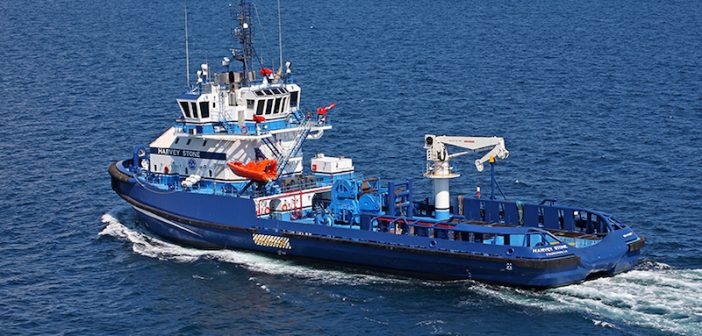According to a recent Transportation Institute report on the Jones Act's national security and economic benefits, Louisiana’s first district supports the greatest number of maritime jobs in the U.S.
“Supporting 33,590 jobs in Louisiana’s First Congressional District and generating nearly $9 billion in economic impact, the Jones Act is not only a vital piece of America's national security strategy, but a pillar of economic strength and job creation for the district,” House Republican Whip Steve Scalise (R-La.) said in a prepared statement. “These jobs are critical to the transportation of goods and to offshore energy exploration and production in the United States.”
The Jones Act is a national security statute enacted to prevent U.S. dependence on foreign vessels and preserve a ready reserve force for times of war. Specifically, this law states that the transportation of merchandise between U.S. points is reserved for U.S.-built, owned, and documented vessels. “I am proud to announce that Louisiana’s First Congressional District supports the most Jones Act jobs in the entire nation," said Scalise. "From the Mississippi River to Port Fourchon, the maritime community in Southeast Louisiana keeps our state and our country’s economies moving. With 33,590 domestic maritime jobs, the first district alone generates roughly $9 billion in annual economic impact for the state.”
A recent study conducted by PriceWaterhouseCoopers for the Transportation Institute found the following:
- Louisiana's First Congressional District is number one for Jones Act jobs. The district supports 33,590 jobs that generate an $8.97 billion economic impact for the state.
- Between 2011 and 2016, 8,540 new Jones Act jobs were created in LA-01.
- Louisiana overall has 70,780 Jones Act jobs with an $18.2 billion economic impact.
- Nationally, the maritime industry supports 648,220 jobs and generates a $154.8 billion economic impact.
“The state of Louisiana is the nation's top job-producing state for the entire domestic maritime industry, supporting 70,000 family-wage jobs and contributing over $18 billion to the national economy,” said James L. Henry, chairman and president of the Transportation Institute. “The findings in our most recent study demonstrate the strength and necessity of the Jones Act which serves as the backbone of the American maritime industry, the U.S. industrial base, and the hardworking men and women that crew the vessels that deliver both in times of war and peace.”
“The men and women of the American tugboat, towboat and barge industry are a driving force for the nation’s and Louisiana’s economy, safely and efficiently transporting energy products, agricultural products, manufactured goods and other vital commodities on America’s rivers, coasts, and Great Lakes. This maritime commerce is fundamental to American prosperity, and would not be possible without the Jones Act," said Tom Allegretti, president & CEO, The American Waterways Operators.
“Louisiana is blessed with an abundant amount of natural resources, and it is the people working each and every day along our waterways and in our shipyards that help us utilize these resources to the fullest,” Scalise added. “Most importantly, however, is the role that the Jones Act community plays in our country’s national security. Sustaining these highly skilled positions and a thriving industrial base in Louisiana and across the country ensure America will always have a knowledgeable and ready maritime workforce to build, maintain, and strengthen our naval capabilities. When our shipbuilders and maritime workers are able to thrive, the entire country benefits.”




